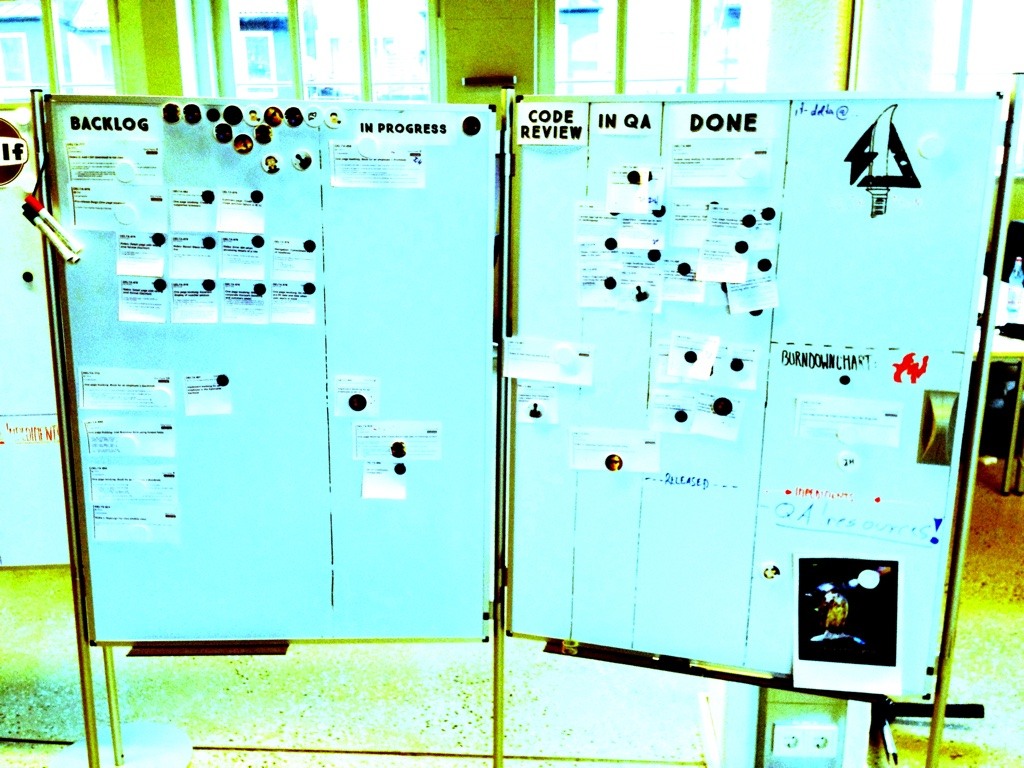Age of Product’s Food for Thought on October 18th, 2015 on MVP best practices, agile failure patters in organizations, the rule of notifications, success and being yourself, the Failure of Everest, bubble talks and what it takes to build an entrepreneurial ecosystems:
: Your MVP is minimal, but is it viable?
This day an age when startups talk about MVP the emphasis is always on minimum.
Everyone encourages founders to not wait too long to launch, to get it out there, to get feedback, and to start learning from the market.
That is a great advice in general, and I am personally a big fan of going fast vs going slow. Yet, to me there is a subtlety that is lost in the message, which leads to misinterpretation and bad outcomes.
: Notifications run our lives now. Is there room for any more?
As software eats the world and takes control over the jobs and services we care about, it also generates an awful lot of notifications: 3 new emails. 4 new interactions on Twitter. 30 minutes until your next meeting. Your Uber is arriving now. Notifications have essentially become the third runtime of the phone.
: Default Alive or Default Dead?
When I talk to a startup that’s been operating for more than 8 or 9 months, the first thing I want to know is almost always the same. Assuming their expenses remain constant and their revenue growth is what it’s been over the last several months, do they make it to profitability on the money they have left? Or to put it more dramatically, by default do they live or die?
The reason is a phenomenon I wrote about earlier: the fatal pinch. The fatal pinch is default dead + slow growth + not enough time to fix it. And the way founders end up in it is by not realizing that’s where they’re headed.
(via RebootHQ):
Brad Feld of Foundry Group and Techstars joins Jerry Colonna to talk defining success for yourself and Brad's powerful advice to Jerry as a young VC.
I’m successful if I create a unicorn….What a stupid fucking phrase.
(via Product Hunt): The Rise and Fall of Everest (the App)
What went wrong:
(1) We thought we were building an MVP and it was chock full of “nice to have” not “must have” features. We kept adding rather than being oriented around subtracting.
(2) We launched a slow, buggy product.
(via Age of Product): Agile Failure Patterns In Organizations

Agile Failure: Why Agile is not succeeding in organizations. Patterns, reasons and what you can do to prevent this from happening. (Hands-on Agile.)
(via Forbes): What Bubble? The Unicorn Boom Has Just Begun
Bubble? Hardly. Yes, many $1 billion startups are overvalued. But when viewed together and weighed against the first dot-com boom, they still represent a blockbuster investing moment.
(via CB Insights): Venture Pulse Q3’15: Global Venture Capital Report
Venture capital-backed companies raised more than $37B in Q3 2015 across 1,799 deals globally. The Venture Pulse Q3’15 Global Analysis of Venture Funding offers in-depth analysis into the financing trends including unicorn growth, mega-rounds, country breakdowns, the most active investors, and more.
: The Deployment Age
Perez’ theory describes the path a technological revolution, like the Industrial Revolution, takes and the social, economic and institutional changes that go along with it. The jury is still out on the theory, and there are plenty of reasons to doubt it. But if it successfully predicts what happens over the next ten years it will have in good part proved its power.
(via The New Yorker): Two Paths Toward Our Robot Future
Technocapitalism has always been driven by a logic of displacement: of technology as a means of removing the middleman between suppliers and their customers, and of removing labor as a mediating presence between corporations and their profits. Because there is no reason to assume that this ideal of displacement will itself be displaced, there is no reason to assume that humans will be kept in any loop from which they might profitably be removed.
(via Wired.co.uk): Facebook Messenger: inside Mark Zuckerberg's app for everything
The Chinese have already shown what’s possible: social media giant Tencent enables 600 million people each month to book taxis, check in for flights, play games, buy cinema tickets, manage banking, reserve doctors’ appointments, donate to charity and video-conference all without leaving Weixin, the Chinese version of its WeChat app.
(via Medium): Side Product Marketing is The New King
What to Do When Blogging Takes Ages and Ads No Longer Work.
From ‘Me Me Me’ Marketing to Value Creation: It is not rocket science: People don’t really care about your business unless you give them a reason to. But they start to care once you start doing the legwork that helps them or creates value.
(via Medium): What makes an entrepreneurial ecosystem?
The entrepreneurial economy thrives wherever there is know-how, capital, and rebellion

